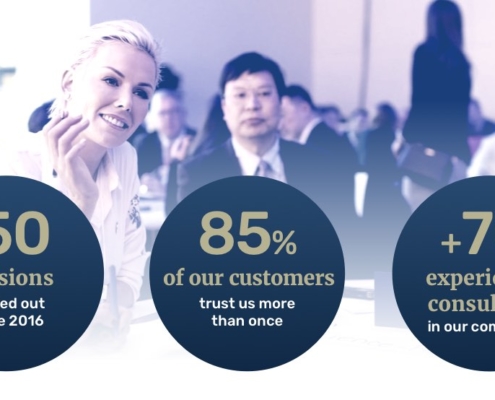Successful digital transformation of banks: a question of mindset!
Digital transformation of banks. Words that sound so obvious, and almost like a vital need in 2020. Words that seem to have the power to solve everything in our ever-changing world. In the light of falling interest rates and declining margins, in the face of the current crisis and the economic context, which continue to cause concern, in the face of new players emerging and claiming their slice of the pie: it’s time to transform yourselves.
When you are a banking institution that was founded several decades ago, when you have thousands of employees around the world, when you use a complex IT infrastructure and when you are concerned about compliance, it is not easy to carry out a digital transformation project.
We have come a long way, however. Fintechs have accelerated the movement. Small, agile, fast, high-tech, they have reshuffled the cards in the banking sector in just a few years. In their tracks and with their collaboration, the traditional players have begun a major transformation of their customer journey. Today, basic banking operations – transfers, checking accounts, changes in credit card limits, etc. – are fully digitised at most major banks. Some more complex operations – taking out a loan or managing a portfolio at 100% – are in the process of being digitised. Artificial intelligence has led to the emergence of new forms of robot-advisors and opens up a wide range of possibilities.
Much remains to be done, however, especially in terms of internal processes, which are lagging behind. Silo organisations, heavy processes, the overwhelming weight of regulation… traditional banks are still struggling to transform themselves from within.
The question then arises as to “how”. How to succeed your digital transformation when you don’t have the culture, youth and natural agility of a start-up? How do you make the, still, obscure obvious? How do you launch in-depth change, not only through technology but also, and above all, through people? Let’s be clear: digital transformation is not a matter of technology, but of mindset. The most efficient technology will never produce any effect if it is not accompanied by an appropriate corporate culture, combining agility, transversality and customer orientation.
Agility is the first ingredient for a successful digital transformation. A company becomes agile when it adopts shorter development cycles and allows itself to do things differently. Legal and Compliance departments have a strong influence in today’s banking institutions. Operational teams are subject to multiple prohibitions, constraints and obligations – related to security, legislation and internal policies – that restrain innovation and perpetuate a certain reluctance to innovate. The solution in such a context is to perform small-scale experiments, to launch pilots with limited risk and a low likelihood of internal rejection.
Successful digital transformation also means becoming more horizontal. This means quite simply encouraging dialogue between all the company’s entities. One of banking institutions’ greatest barriers to digital transformation is siloed structures and the lack of communication between the departments. Too often IT teams work with insufficient consultation with operational teams or the Compliance department. The challenge is to create multidisciplinary teams bringing together all the company’s entities including the general management ahead of each new project linked to the digital transformation of the company. It is by involving all the stakeholders as early as possible and by making the most of their synergies that banks will be able to successfully carry out their digital revolution.
Finally, any digital transformation process must take customer expectations into account. A transformation project that responds poorly, or not at all, to a real need is a project doomed to failure. It is a matter of listening to customers, beyond the classic satisfaction surveys, which only focus on what already exists, to understand their needs and vision in order to develop the most appropriate solutions.
The digital transformation of banks is underway, but developments are slow and still face many obstacles that are more human than technological. Today’s priorities for large banks must be to re-establish the foundations of their corporate culture and to rethink their organisation and interaction methods. By seeking to provide ever more relevant answers to this simple and yet fundamental question: “how can we learn to work better together?”.












